Self Storage Tips – Make the Most of Your Space with GreenKey Storage
Self Storage Tips
It’s common to overlook the need for extra storage until it becomes urgent. However, hastily choosing the nearest facility without considering its services and amenities can be a mistake. At Greenkey Storage, we take pride in our friendly and knowledgeable staff who are always ready to guide you through your options, share useful self storage tips and tricks, and provide exceptional service.

Gather Materials
- Estimate the number of boxes and packing materials that you’ll need.
- Use strong, new, or almost new, boxes. If you’re using used boxes, be aware that they may be harboring insects or rodents and could be in a weakened condition.
Inventory
- Create an inventory list of your items and keep copies in a location away from the unit.
- Identify which items you may need to access while they are in storage.
Prep Your Space
- Measure and estimate the collective packing size of the items you plan to store.
- To keep items off the unit floor, use pallets.
Arrange Boxes for Convenience and Safety
- Boxes should be strong enough to hold 25-30 pounds (don’t overpack)
- Leave aisles for ease of access.
- Think about arranging for easy access. Plan for anything that you think you need frequently to be placed in the front of your unit.
- Place boxes that contain fragile items on top of boxes packed with heavier items.
- List contents on all four sides of boxes and seal tightly with good quality packing tape.
Hazardous Materials and Perishable Items
- It is prohibited to store flammable, hazardous, or combustible materials (paint, paint thinner, gasoline, propane, or paint).
- Drain fuel from lawnmowers, snowblowers, trimmers, or any other equipment that uses fuel.
- Perishable items are prohibited because they attract rodents and insects.
Fragile Items
- Large pictures and mirrors should be wrapped in cardboard, marked “FRAGILE” and stacked on end.
- China, crystal, porcelain, and any other breakable items should be carefully wrapped in packing paper and/or bubble wrap and boxes should be marked “FRAGILE.” Dish and glass packs are best for these items.
Extra Space
Store linens and small items in empty furniture drawers. Wrap fragile items carefully.
Appliances and Electronics
Large appliances make excellent packing space for blankets, towels, bedding, table linens, and even heavy clothing.
To prevent accidental damage, place TVs and other electronics in the rear of your unit.
Utility and Gardening Items
- Shovels, hoes, rakes, and hoses can be stored in clean, empty trash cans.
Sofas, Chairs, and Loveseats
- Sofas and loveseats can be stored on end to save floor space.
- Wrap cushions in furniture covers and place them on top of sofas.
- Cover everything with furniture covers or pads to prevent dust.
- Don’t place sharp or heavy objects on upholstered or leather furniture.
- Wrap furniture legs to prevent damage.
- If you need to store any furniture that can be broken down, keep small parts in plastic bags and tape them to the item.
Tables
- Break down tables that have removable legs to save space.
- Never cover or wrap wood items with plastic. It can leave a residue that causes permanent damage. Use cloth pads or covers.
Beds and Mattresses
- If you store mattresses on their sides, prop them up so that they stand straight. This will prevent them from bending and becoming out of shape and lumpy.
- If you are breaking down a bed frame, be sure to keep all small parts in a plastic bag taped to the frame.
Metal Items
- Wipe metal items such as bikes, tables, and tools with machine oil to prevent rust and corrosion.
- We hope ideas for storage help. Remember, call us with any questions. We may have more self storage tips and tricks to make your experience exceptional.
“Let’s put the joy back into packing” (said no one ever)!
We’ve compiled a list of great ideas for storage tips to help you prioritize your needs and streamline your organization.
1. Make sure to have enough of the appropriate packing supplies.
Not having what you need will add exponentially to your frustration. We can help with that. Just click on Moving and Packing Supplies to find everything you need.
2. The Golden Rule.
The heavier the item the smaller the box. Save the larger boxes for things that are lighter and harder to carry on their own. If you’re using professional movers, they will thank you!
3. Do your sorting ahead of time.
Dispose, donate, and store early. There will be items that you’re simply not ready to dispose of. You may need them in your new home. We’re here to store your belongings in a safe, secure, climate-controlled unit.
4. Label and color code your boxes.
This one is obvious. You need to know what’s in those boxes, and the movers need to know where to put them. Color code the boxes by room. You can buy color coded labels and packing tape at Walmart. Make sure to stick a coordinating piece on the door frame of each room so that all your belongings end up in the correct place.
5. Pack the same room in the same box.
Don’t pack your towels with your frying pans. Unpacking items that all belong in the same room saves time and energy.
6. Don’t wait to pack kitchens and bathrooms.
These rooms take the most time, so get them finished. If you have more than one bathroom, pack up all but one and close the doors. You can use one bathroom with minimal toiletries for a week. Use paper plates and plastic utensils for a while, and no cooking for the last few days so that you can clean out the fridge. Live on sandwiches, cereal, and take out.
7. Decide on a place to store packed boxes.
You can designate an area in your home (basement or garage), or you can leave the boxes neatly stacked in the rooms where they have been packed. Do what works best for you and your family.
“We never opened those boxes after the last move. Why are we taking them with us?”
You’re packed and ready to go. Whether you’ve hired professional movers or decided to DIY, it’s not as much fun as you would think (lolololol)!
Here are a couple of tips to make it more tolerable and maybe even the best moving day you’ve ever experienced.
1. No packing on moving day.
This is non-negotiable if you want the day to run as smoothly as possible. Waking up to piles of items that haven’t been packed is a nightmare.
2. Be prepared with food and drinks.
Fill a cooler with water, energy drinks, and snacks to keep everyone hydrated and energized. Make sure that you have designated a friend or family member to pick up necessary meals for you and the movers. Keep everybody happy.
3. If possible, set up cable, internet, and utilities before you move.
Make sure you are at your new home during cable and internet installation, so that you can be assured that everything is in working order when you move in.
4. Keep your most important and valuable items with you.
It goes without saying that you don’t want to leave valuable jewelry, important documents, and prescription medications in drawers or packed in a box that is subject to loss or damage.
5. Create a basic unpacking kit and keep it with you (this is a genius tip!!!!!)
These are essentials that will help you get through the first few days.
- Trash bags
- Box cutter
- Hand soap
- Toilet paper
- Paper towels
- Plastic utensils
- Paper plates/cups/bowls
- Shower curtain liner
- Shampoo and conditioner
- Shower gel/body wash
- Towels for each family member
- Spray cleaner and cleaning cloth
- Pain reliever
- Granola bars
“The secret to a happy life is HIS and HERS storage units.”
Storage can be a life saver during a hectic move, and it’s doubtful that there is a move that isn’t hectic. There will be items that, for various reasons, you don’t want to move to your new home, but that you’re just not certain should be discarded.
This is when you need a safe, secure storage unit. Since your packing anyway, anything that you’re not taking along will be ready to store (even those boxes that you never unpacked from the last move.)
Here are a few helpful storage tips:
- If you’re storing anything with drawers, use that extra space for small items.
- If you need to store a bed frame or any other large furniture that needs broken down, keep all small parts in plastic bags and tape them to the item.
- Wrap furniture legs with protective bubble wrap, furniture covers, or pads, to prevent damage.
- To prevent dust, seal boxes tightly with good quality packing tape.
- As with your move, be sure to label all boxes.
- Place boxes that contain fragile or delicate items on top of boxes packed with heavier, sturdier things.
- Anything that you think you may need to use frequently should be placed at the front of your unit.
- To keep items off the unit floor, use furniture pads or covers.
- If you’re storing business files, leave a pathway to make access easier.
- Do not store anything flammable or perishable.
- Do not store hazardous or combustible materials. Drain fuel from lawnmowers, trimmers, and any other equipment.
- Be sure to purchase a secure lock. For your convenience, we carry a wide range of high-quality locks.

